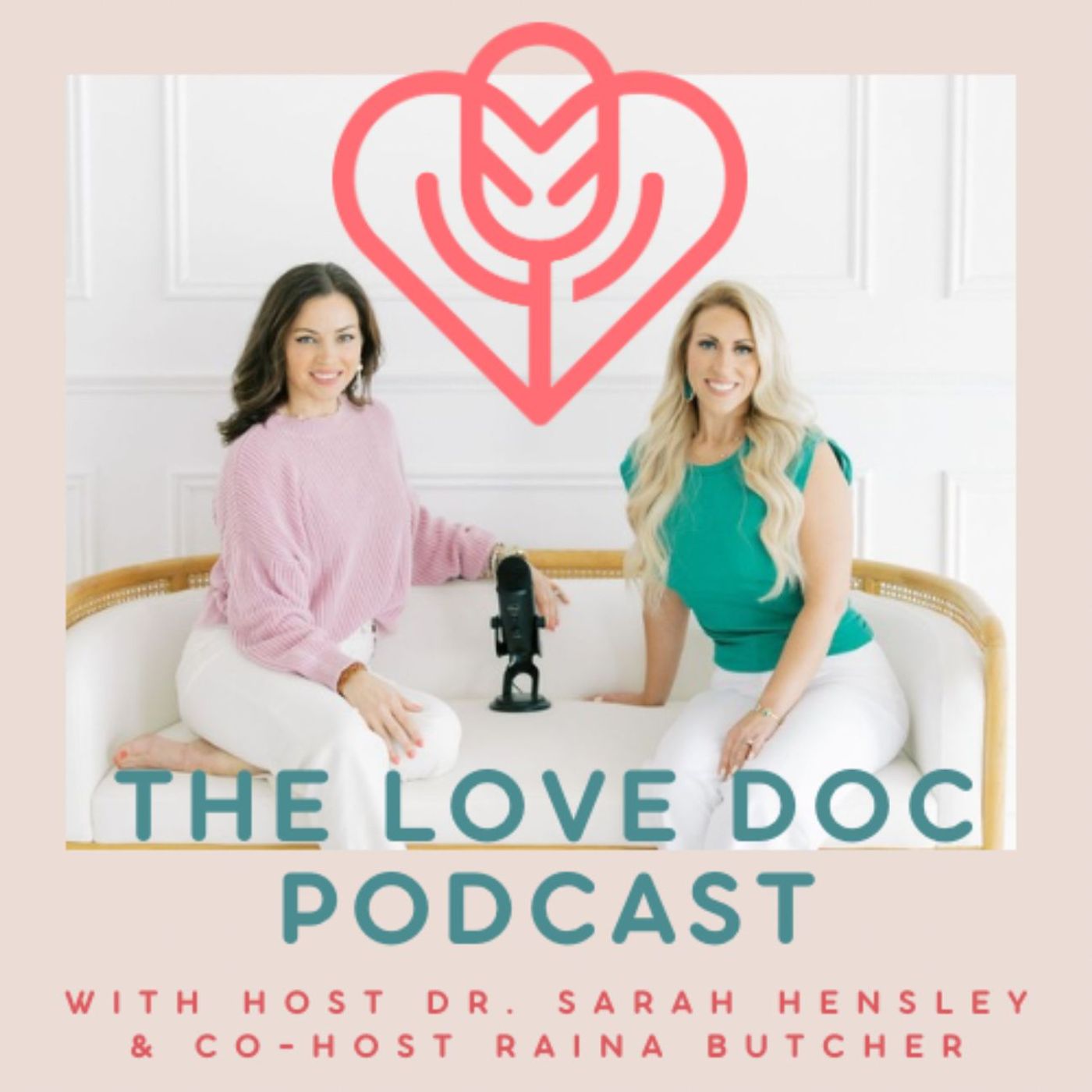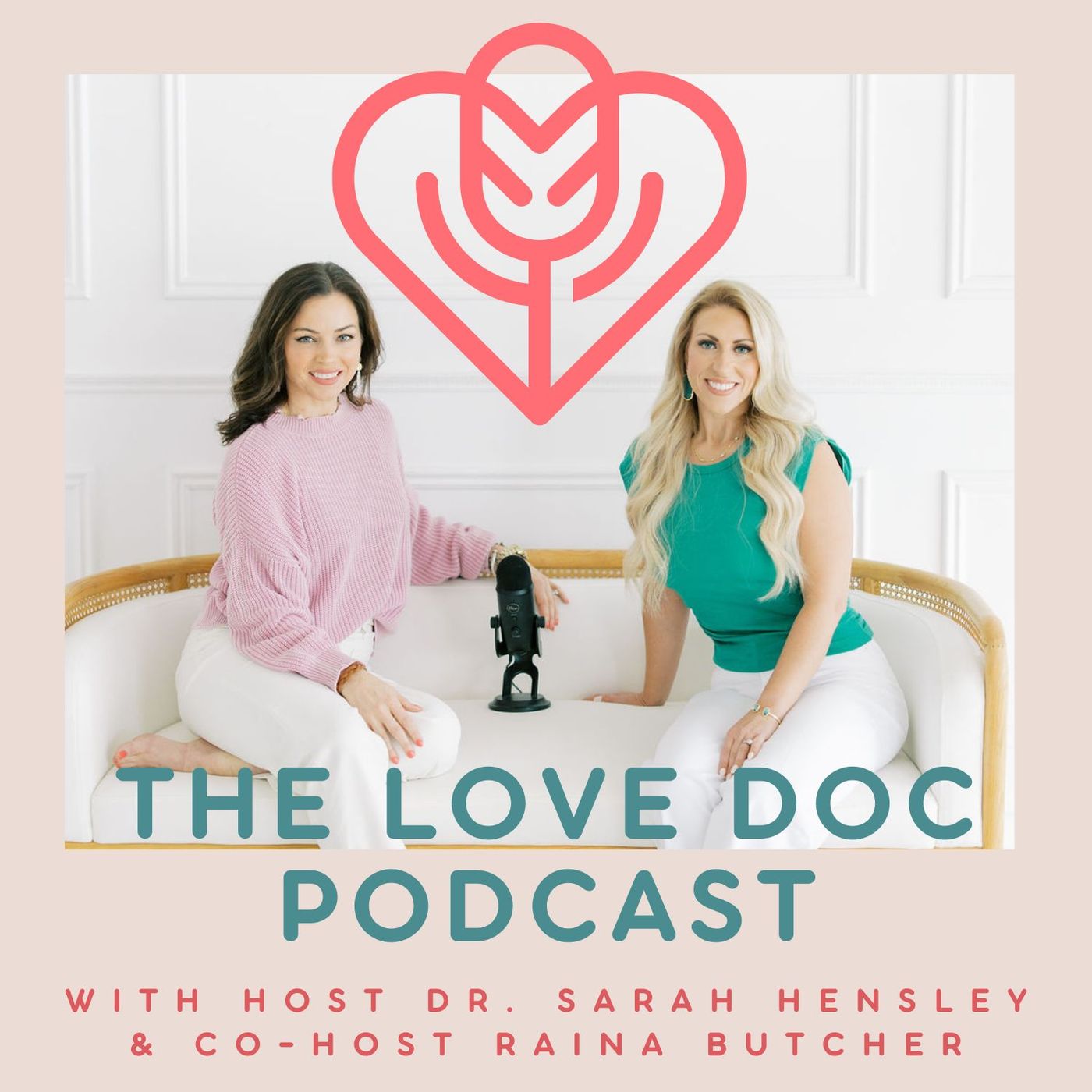Episode 21 | Pop Psychology is Not Psychology
Update: 2024-10-08
Description
Hosted by Dr. Sarah Hensley, Specialized Social Psychologist, Attachment Theory Expert, and Founder & CEO of The Dating Decoder with Co-host Raina Butcher, Owner/CEO of Joyful Consulting Welcome to "The Love Doc Podcast" where Host Dr. Sarah Hensley and her co-host Raina Butcher dive deep into the intricacies of love, attraction, attachment, relationships, and self-awareness. Dr. Hensley brings a wealth of knowledge and experience to help listeners navigate the complexities of modern romance. In each episode, Dr. Hensley tackles burning questions about love, relationships, and the mind’s complexities, drawing from her psychological research, real-life experiences, and her own individual expertise, to provide insightful perspectives and practical advice. Episode 21: "Pop Psychology is Not Psychology." In this episode, Dr. Hensley and co-host Raina Butcher break down several misconceptions and misuses of psychological concepts that are often spread through social media and pop culture.
Become a supporter of this podcast: https://www.spreaker.com/podcast/the-love-doc-podcast--6390558/support.
- “Not everyone you dislike is a narcissist.” Dr. Hensley explains how narcissistic personality disorder (NPD) is difficult to diagnose and measure, primarily because individuals with NPD are often manipulative and lack self-awareness. NPD exists on a spectrum, and while some people may show narcissistic traits, it doesn’t necessarily mean they have NPD. She encourages listeners to revisit episode 10, “Are They a Narcissist?” to learn the differences between narcissistic traits and attachment insecurities.
- “Not every unpleasant experience is trauma.” Trauma is highly nuanced and specific to each individual’s perception and experience. Labeling every unpleasant event as trauma can actually undermine one’s nervous system and create a victim mentality. Dr. Hensley and Raina discuss how their generation has raised children with an aversion to all discomfort, resulting in a generation with poor coping skills. Dr. Hensley advocates for attachment-based parenting and shares tools she used with her own children, emphasizing the importance of teaching regulation as a foundation for resilience.
- “Having needs does not make you co-dependent.” Dr. Hensley breaks down the difference between expressing needs and being co-dependent. Raina shares a personal story about her son and his young relationship, illustrating that stating your needs doesn’t make you a bad partner—sacrificing them to keep the peace, however, may indicate co-dependency.
- “Disagreeing does not mean someone is gaslighting you.” Disagreements are a normal part of communication, and differing perspectives don’t necessarily equate to gaslighting. Dr. Hensley explains that people view reality through their own lenses, shaped by experiences and upbringing. Just because someone has a different opinion doesn’t mean they are trying to manipulate you; they may simply be trying to convey their reality.
- “Not all conflict is abuse.” The hosts tackle the misconception that any form of conflict is abusive. Dr. Hensley highlights that voice inflation is a normal part of heated discussions and does not equate to abuse. She shares her own boundaries around conflict in her marriage, such as not tolerating yelling, cursing, physical aggression, or threatening divorce. Through her personal experiences, Dr. Hensley gives listeners a clearer picture of what abuse actually looks like.
- “Taking offense is not being triggered.” Being unoffendable is a key skill for regulating attachment insecurities. Dr. Hensley explains that being offended by someone’s words on social media doesn’t mean you’re being triggered. Understanding what a true trigger is—something that activates deep-seated trauma or unresolved issues—is crucial for emotional regulation.
- “Everything does not need to be normalized.” “Normal as in common does not always mean normal as in healthy,” Dr. Hensley states. The hosts discuss the societal push to “normalize” things that may not be healthy, sometimes confusing social acceptance with psychological wellness. Dr. Hensley emphasizes that some behaviors we try to normalize might be indicative of mental illness.
- “Speaking like an HR memo is not self-awareness.” Dr. Hensley shares a personal anecdote about falling into “teacher mode” in her own marriage and how her husband has to call her on it. She then realizes that it creates distance rather than connection. Speaking in an authoritative or clinical tone, even with good intentions, can come across as detached and lack vulnerability. Dr. Hensley wraps up by advising listeners to seek professionals who are well-versed in real psychological principles. She warns against the proliferation of self-proclaimed experts on the internet and encourages her audience to research credentials and ensure they’re working with someone who has the proper education and expertise. Tune in to this episode for a thought-provoking discussion on the difference between genuine psychological understanding and the oversimplified “pop psychology” narratives that dominate social media. Tune in to "The Love Doc Podcast" every Tuesday morning for candid conversations, expert guidance, and a deeper understanding of love and relationships in the modern world. To see all of Dr. Hensley’s services please visit the links below and follow her on social media. Dr. Hensley’s Hybrid Group Coaching: https://www.thedatingdecoder.com/group-coaching/ Book one on one with Dr. Hensley or one of her certified coaches: https://www.thedatingdecoder.com/book-appointment/ Purchase Dr. Hensley’s online course: https://dating-decoder.mykajabi.com/offers/PpEPKnsM/checkout Tik-Tok: the_dating_decoder Instagram: @the_dating_decoder Facebook: The Dating Decoder Youtube: @Dr.SarahHensley What is covered: · What is pop psychology. · Not everyone you dislike is a narcissit. · Not every unpleasant experience is trauma. · Having needs does not make you co-dependent. · Disagreeing does not mean someone is gaslighting you. . Not all conflict is abuse . Taking offense is not being triggered. . Everything does not need to be normalized. . Speaking like an HR memo is not self-awareness. . The importance of finding trained and educated professionals in the field of psychology that can help you on your healing journey. Consider/Ask Yourself: · Are you allowing pop psychology to influence your feelings? · How is social media influencing your ideas and knowledge around mental health? · How can you take each of the topics discussed in this episode and digest them to ensure you are not allowing pop psychology to influence the way you feel and act? . Are you seeking out credible resources and doing your due diligence when it comes to finding the correct mental health professional?
Become a supporter of this podcast: https://www.spreaker.com/podcast/the-love-doc-podcast--6390558/support.
Comments
Top Podcasts
The Best New Comedy Podcast Right Now – June 2024The Best News Podcast Right Now – June 2024The Best New Business Podcast Right Now – June 2024The Best New Sports Podcast Right Now – June 2024The Best New True Crime Podcast Right Now – June 2024The Best New Joe Rogan Experience Podcast Right Now – June 20The Best New Dan Bongino Show Podcast Right Now – June 20The Best New Mark Levin Podcast – June 2024
In Channel






